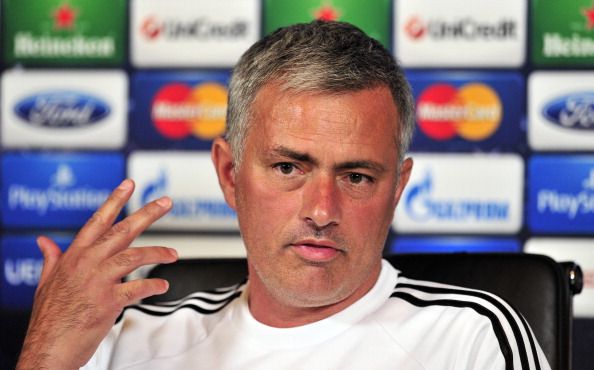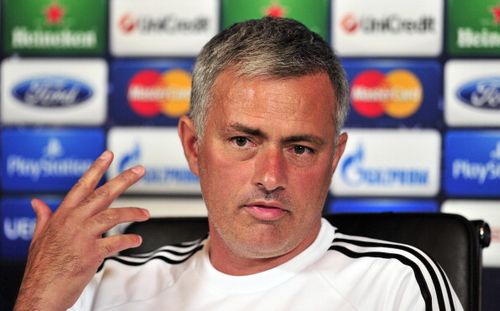
Chelsea’s starting lineup for success over narcissism

With two wins and two losses, out the four games played this month by Chelsea, the club faces the difficult task of traveling to Tottenham and getting points to close, or at least hold, the early gap with the league’s leaders. After consecutive losses, Mourinho’s team had the good fortune of playing Fulham at home and Swindon Town away. Both opponents followed the script, giving no real problem to Chelsea. Hence, allowing the Portuguese manager to exploit his squad’s deep bench and giving us a chance to analyze Chelsea’s team better.
First, with the wounds left by Basel still fresh, Stamford Bridge needed a balsamic win to restore faith in the Mourinho’s project. So, entered Fulham, the middle of the pack team that hasn’t won at the Bridge since Sir Bobby Robson played (1964), and whose only hope for goal, with Bervatov’s absence, resided in the underperforming Darren Bent. With that in mind, the match was one way traffic and a win for Chelsea. Still, there was no rhythm or fluidity about Chelsea’s game.
With Oscar at the helm in midfield, the team concentrated itself in trying to break Fulham’s defence through the middle, which played perfectly into an awaiting opposition who stood firm on its side of the pitch and looked for quick counterattacks in response. Such a waiting tactic by the visitors was almost fruitful early on in the first half, when Bent received the ball with nothing but the goal in front of him. Thankfully, for the hosts, Cech saved Bent’s low shot and kept his sheet clean. That early chance exemplified the reason behind my recurrent call for Ivanovic to be moved back to centre back.
The space he left behind generated from his lack of positional awareness while playing right back, allowed Bent to run free on top of both centre backs on the aforementioned play. At the end, it was Fulham’s deep positioning on its own side of the pitch that conceded Ivanovic a worry-free day in defence. Plus, the Serbian’s contributions in attack through the flanks remain timid at best, again made less noticeable by Fulham’s deep stand, and Schurrle’s constant traffic through the right flank.
Furthermore, about the midfield, Oscar and Hazard were constantly bringing Chelsea’s attacks through the middle resulting in easy clearings by Fulham’s middle and defensive line. Only Schurrle tried to extend the plays on the sides. And thanks to his runs on the flanks, came Chelsea’s first goal. Therefore, if Oscar is going to start instead on Mata as a central midfielder, Schurrle needs to play beside him in order for Chelsea to have success, because Oscar refuses to play the ball wide, he is in love with the centre of the pitch, or big centre backs maybe?
Oscar’s tactical inclinations were self evident throughout the match, but were highlighted with the introduction of Fernando Torres in the second half. More than three times, Torres made the proper rotation to extend the play and receive the ball close to the sidelines when Oscar had it at his feet, but the ball went back to the central zone and the number 9 was left standing with plenty of space to run forward, and frustrated with the Brazilian’s poor choices.
Expanding on Torres, his presence on the field was felt immensely compared to Eto’o’s. The Spaniard constant movement and accurate runs made Chelsea’s attack dangerous, even producing the corner kick for the second goal after a great header. Yet, overall, the team was rigid but played better in the second half.